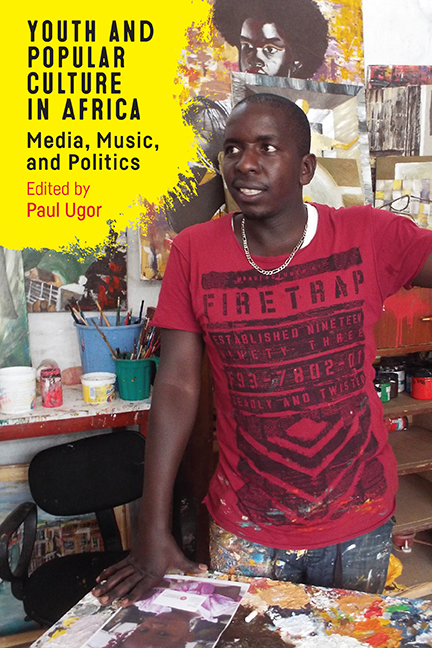Book contents
- Frontmatter
- Dedication
- Contents
- Preface
- Introduction: Youth, Media, and Popular Arts Culture in Contemporary Africa
- Part One Media Globalization, Popular Afro Hip-Hop, and Postcolonial Political Critique
- Part Two Popular Online Media and Democratic Participation and Engagement
- Part Three Popular Arts, Everyday Life, and the Politicization of Culture
- Afterword: Young People and the Future of African Worlds
- Notes on Contributors
- Index
6 - The Regeneration of Play: Popular Culture as Infrapolitics on Instagram
Published online by Cambridge University Press: 26 May 2022
- Frontmatter
- Dedication
- Contents
- Preface
- Introduction: Youth, Media, and Popular Arts Culture in Contemporary Africa
- Part One Media Globalization, Popular Afro Hip-Hop, and Postcolonial Political Critique
- Part Two Popular Online Media and Democratic Participation and Engagement
- Part Three Popular Arts, Everyday Life, and the Politicization of Culture
- Afterword: Young People and the Future of African Worlds
- Notes on Contributors
- Index
Summary
Popular arts in Africa are steadily being produced on social media in recent years, signifying the discursive import of the internet, which Karin Barber argues is “the domain of the unregulatable” that has become “increasingly central to popular culture as more and more become connected.” Although what Jodi Dean calls communicative capitalism suggests the internet is anything but unregulatable, there is the sense in which Barber's observation signals a necessary attention to the explosion of the popular narratives being produced by netizens using social media as a playground from which they contest and critique hegemonic structures. Understanding popular culture as an arena in which many nonelite cultural producers create aesthetic forms from the quotidian realities of their everyday urban lives, I examine the implications of Barber's claim in the context of the cultural symbols of youth production and popular laughter on Instagram. My analysis examines the Instagram postings of three young Nigerian comedians as playful texts of infrapolitics that expand our understanding of the intersections of popular play and youth involvement in a digitally enabled public sphere. While acknowledging that questions about internet access and class as well as the political and neoliberal underpinnings of the internet's infrastructure naturally figure into discussions of digital culture, I focus more on the cultural productions of the networked publics that already exist among digital subjects who are generally uncritically impervious to how monetary value is being captured from their cultural and interactive encounters online.
The notion of “networked publics” refers to a “linked set of social, cultural, and technological developments,” which Ito prefers to “audience” and “consumer” because of the ideas of passivity and consumption usually attributed to them. In any case, the existence of a digital divide is not sufficient reason to foreclose the media expressions or practices of those who already have access to the internet. My analysis constructs these new media users as creative subjects imbued with authorial power, making their capacity for self-representation a pertinent development in countries in which historically they have neither been visible nor heard. One of the inflections of this newfound creative voice among young people is the production of humorous narratives that amplify the interpretive gestures of youth culture in relation to the broader social and political contexts they inhabit.
- Type
- Chapter
- Information
- Youth and Popular Culture in AfricaMedia, Music, and Politics, pp. 163 - 187Publisher: Boydell & BrewerPrint publication year: 2021



